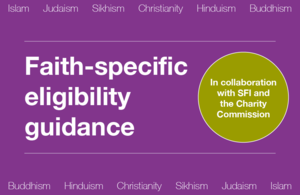Diplomats for Equality support the International Day against Homophobia, Transphobia and Biphobia (IDAHOBIT) 2021
We – the Austrian Federal Ministry for European and International Affairs and the Diplomatic Missions of Albania, Argentina, Australia, Belgium, Canada, Chile, Costa Rica, Croatia, Cyprus, the Czech Republic, Denmark, Ecuador, Estonia, France, Finland, Germany, Latvia, Lithuania, Luxembourg, Iceland, Ireland, Israel, Italy, Malta, Mexico, Montenegro, New Zealand, North Macedonia, the Netherlands, Norway, Portugal, San Marino, Serbia, Slovenia, Spain, Sweden, Switzerland, the United Kingdom, the United States, Uruguay as well as the Diplomatische Akademie Wien-Vienna School of International Studies, European Union Agency for Fundamental Rights (FRA), UN-GLOBE, Delegation of the European Union to the International Organisations in Vienna – all welcome 17 May as the International Day against Homophobia, Transphobia and Biphobia, as a celebration of diversity and inclusion around the world.
This year, in line with the IDAHOBIT theme, we stand “Together: Resisting, Supporting, Healing!” – a powerful message as we continue to overcome the COVID-19 pandemic, which has increased the vulnerability of LGBTIQ+ persons. COVID-19 has exposed existing gaps of equality and exacerbated existing vulnerabilities, including bias and social stigma, discrimination, economic impact, the risk of violence and domestic parental violence, and it has reduced access to gender-affirming health services. We will continue to shed light on these and other injustices, and will continue advocating for everyone, regardless of who they are or whom they love, to be protected and included in the global response to the pandemic. We hope that you will join our efforts, throughout the year, to make Vienna’s diplomatic community a more inclusive community for all. We must stand united in celebrating diversity and the resilience of the LGBTQI+ community and in defending human rights, inclusiveness and justice.
In many countries, LGBTIQ+ persons continue to suffer bullying, discrimination, and violence, often with deadly consequences. In 70 countries, there are laws that criminalise private, consensual relations between adults of the same sex. We remain alarmed at these severely inhumane measures. It is our belief that nobody should face discrimination because of who they are or who they love. We all benefit from living in more tolerant and inclusive societies..
We are committed to promoting and protecting the rights of LGBTIQ+ persons. They must be accorded the same dignity, respect, and rights as all other citizens. We will continue to work through our Embassies and through International Organisations, including, where relevant, the UN, Council of Europe, European Institutions, the OSCE, the Organization of American States (OAS), Mercosur (Reunion de Altas Autoridades sobre Derechos Humanos) and the Commonwealth, to promote tolerance and non-discrimination against LGBTIQ+ persons and to address discriminatory laws, including those that criminalise homosexuality.
We also wish to pay homage to the courageous advocacy efforts carried out by human rights defenders, activists, journalists, media workers and civil society organisations to raise awareness about the issues affecting LGBTIQ+ persons and human rights violations they may face.
We invite you to support our goals, and to follow our social media coverage on Twitter and Instagram via #DiplomatsForEquality.


